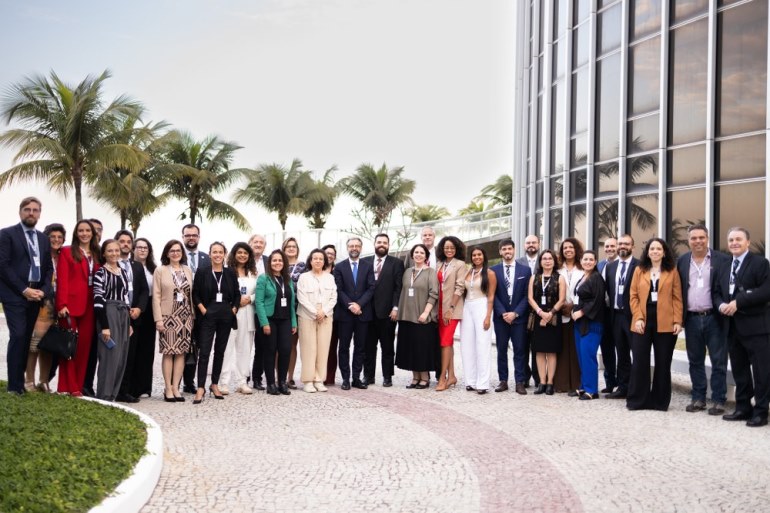Civil Society and Sherpas at the Table Together: Historic Meeting Marks G20 History
Text and photos: G20, with final paragraph by GCOM ABC, 5/7
For the first time in the forum’s history, representatives from the 13 G20 Social engagement groups were able to present their recommendations directly to the delegates.
For the first time in the history of the forum of the world’s largest economies, representatives from the 13 G20 Social engagement groups sat at the meeting table with the delegates and were able to deliver their recommendations. The G20 Social is an initiative of the Brazilian presidency, and since the beginning of the year, it has already carried out several innovative agendas.

The historic moment aligns with the Brazilian presidency’s goal of bringing the G20 closer to people’s lives through social participation. Photo: Audiovisual/G20
Pioneering the invention of the radio by Brazilian priest Roberto Landell de Moura; the only country in the world to have won the FIFA World Cup five times, with titles in 1958, 1962, 1970, 1994, and 2002; and also the only nation with more than 100 million inhabitants that ensures universal and free access to health services through the Unified Health System (SUS).
Today (04), in Rio de Janeiro, Brazil marks another unprecedented achievement in its history and in the history of the world’s largest economies: for the first time since the creation of the G20, representatives of civil society sat at the meeting table with the sherpas of all participating countries and international organizations of the forum to present their demands and suggestions.
Greater social participation in the G20 debate and negotiation processes, which has long ceased to be a forum dedicated solely to economic issues and has also become a space for seeking solutions to global dilemmas in various fields, is a long-standing popular demand of the forum. This year, Brazil, with President Lula at the helm, embraced this demand by creating the G20 Social.
Since the beginning of the year, the group has already participated in other unprecedented and innovative activities, including events alongside the Finance Track and an official meeting at the Presidential Palace with Minister Macedo. However, Thursday’s meeting holds special significance because the sherpas are the negotiators of the political track.
Gustavo Westmann, head of the Special Advisory for International Affairs of the General Secretariat of the Presidency of the Republic and coordinator of the G20 Social, spoke about the importance of the initiative, which he believes is essential for more assertive decision-making by the delegates. “It is somewhat the idea that President Lula always defends, that effective public policy cannot be made without social participation. So, why not take all this to an international sphere, with Brazil leading these movements,” said Westmann.
“The idea of the Brazilian government in creating the concept of the G20 Social was precisely to broaden the base of participation, bring new actors into the debate, but also ensure that these voices are being heard, because we believe that only in this way will we be able to understand what is really happening in the world. To break out of bureaucratic isolation and reach the grassroots, to discuss with those who will be beneficiaries or those who will be affected by all the decisions,” added the diplomat.
With Pedra da Gávea and Morro Dois Irmãos overlooking the meeting and the waves of São Conrado beach breaking in sight of the delegates, the representatives of the G20 Social engagement groups presented their documents. Respecting the diversity of the groups, 13 in total, the statements covered various topics but shared a common theme: the demand for a critical social perspective on the G20’s content, with attention to human, environmental, and social pluralities.
“Those who suffer the most from the governance deficit in the world are the people. Generally, when there is war, there is a lack of emphasis on development, in the fight to reduce inequality, poverty, and hunger. Therefore, these contributions from civil society are crucial for governments to have a greater capacity to reach agreements that improve people’s lives,” said Ambassador Mauricio Lyrio, Brazil’s G20 sherpa.
“This is a special moment because it also compels and leads us to be more concise, that is, to identify the main problems and the main messages we want to convey to these leaders. We have a fundamental role in provoking these governments to do more,” pointed out Alessandra Nilo, coordinator of Civil 20.
After the interventions of the representatives of the 13 engagement groups, the delegates commented on the proposals, deepening the debates on the proposed themes. Until November, when both the Social Summit and the Leaders’ Summit take place, other interactions between the G20 Social and the Sherpas and Finance Tracks will occur, refining the connection between authorities and civil society.
[The president of ABC, Helena Nader, was represented by Academic Patricia Bozza (on the screen), leader of the S20 Health Challenges task force. She presented a summary of the recommendations of each task force. “Under the theme ‘Science for Global Transformation,’ the S20 Science Academies focused on five interrelated critical areas aligned with the UN Agenda 2030: Artificial Intelligence, Bioeconomy, Energy Transition, Health Challenges, and Social Justice,” she reported. Read her full speech here.]





